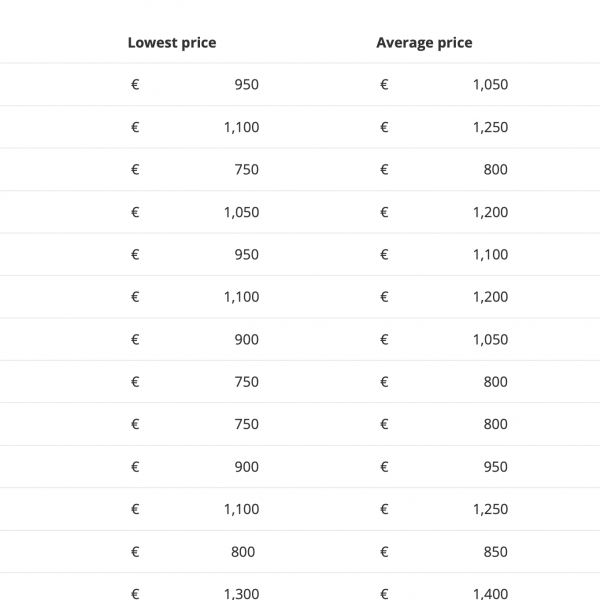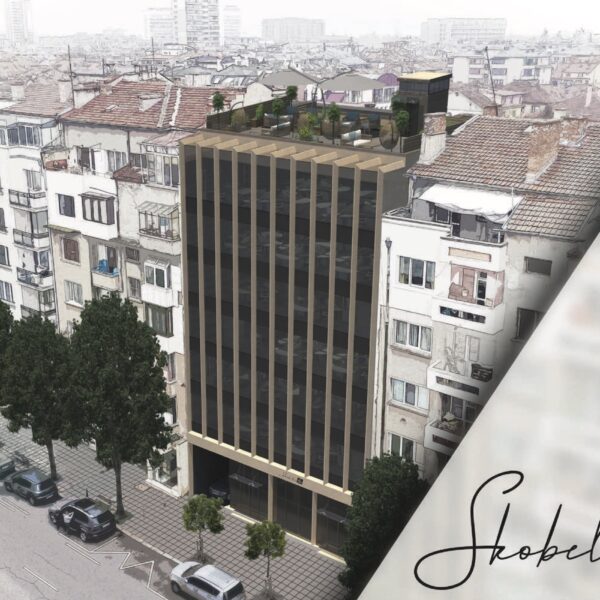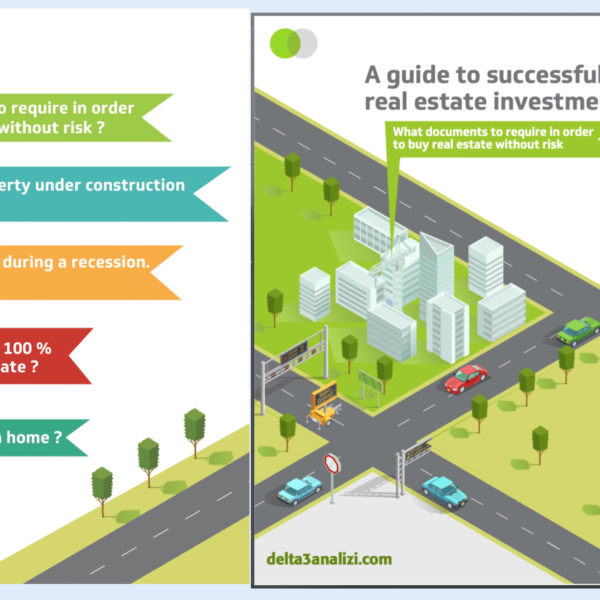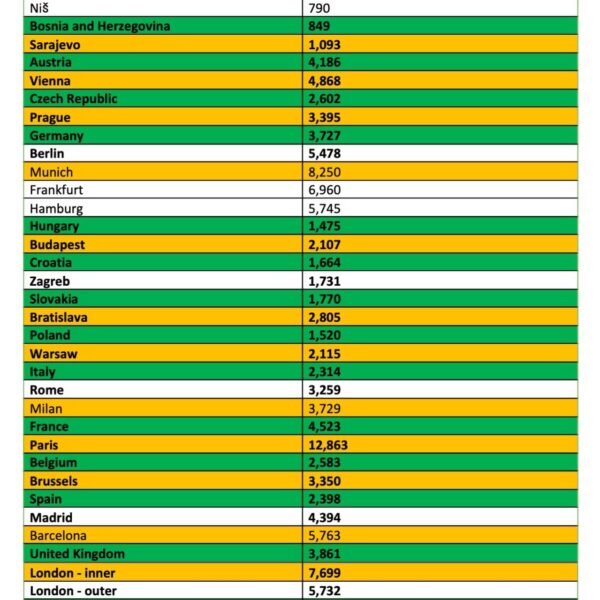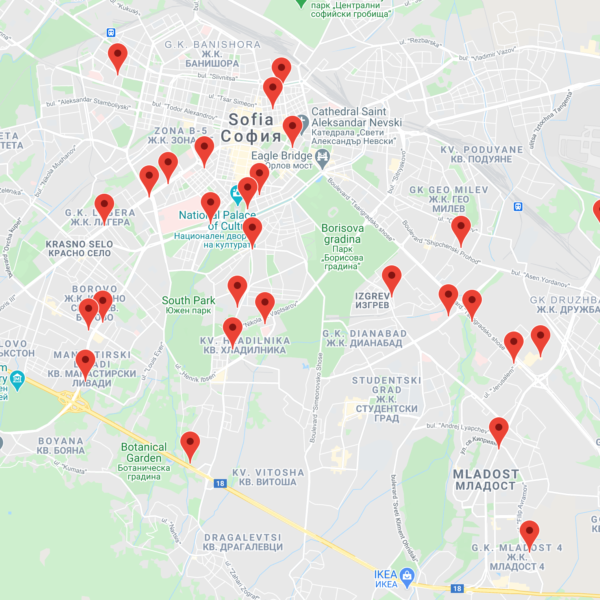1. Understand the place of the property
Bulgaria property market is diverse and not so much segmented. There is no such think as “the best place” or “the best neighborhood” in Sofia or in any other city in Bulgaria. The most expensive neighborhood is not so much different from another one with prices which are 30% less. Bulgaria and every place in the country has its positives and negatives, but much more positives. See the different places and neighborhoods with your own eyes and decide for yourself. You will be surprised how safe and nice Bulgaria is.
2. Work with an experienced real estate agent
Ask someone to give you a recommendation or just try with different agents and choose for yourself. It is key to have a representative who is local, experienced and who will protect you. What happens when you start browsing for offers yourself is that you call a dozen different agents who you have to pay if you buy the property they offer because this is how the market works in Bulgaria. But they are not your agents, they are representative of the sellers and most of the time you still have to pay them.
You will also see some offers which are directly from the owner. Be careful there are some sellers who have different “menus” with different prices specially for foreigners.
Be smart, work with an experienced real estate agent who is your representative and who looks after your interests. This is key for successful Bulgaria property investments.
3. The Deposit
The best offers do not stay for a long time. So when you find “the one” make sure that you are the one that will close that deal. Making a DEPOSIT means that you reserve this property for yourself until the time the agent and lawyer check all the documents and you actually make the purchase. The DEPOSIT AMOUNT varies from 1000€ to 2000€. If the property costs up to 80 000€ the deposit will be 1000€ and if the property costs over 80 000€ the deposit can go up to 2000 €.
When you make a deposit on a property you want to buy follow these simple rules:
1) Demand to see the NOTARIAL DEED to check if the owner is the same person;
2) Demand a Deposit contract which contains the terms of the deal like: which property you reserve, the price, who is going to pay the notary expenses, what is the final date for preliminary contract or for the final contract.
By making a deposit and signing the Deposit contract you reserve the property for yourself till certain date mentioned in the Deposit contract. The rules are: If you change your mind after and you do not buy the property you loose the deposited money. If the seller changes his mind and he decides not to sell or sell to a third party person, the seller is obliged to return your deposited money double the amount.
4. The Preliminary contract.
After you found the desired property and you have made a deposit to reserve it for yourself there are three options:
Option 1: You have savings and you can buy the property without mortgages and bank loans. In that case you can skip the Preliminary contract and you can go for Final contract and transferring the property on your name. That can happen if the seller is ready with all the documents to make that Final contract.
Option 2: You want to use a bank loan (mortgage). So you definitely need to sign a Preliminary contract because the bank requires it. After that, the bank inspector will demand and check all the documents for the deal. It usually takes a month before they give you their final yes and you can proceed to the Final contract and transferring the property on your name.
Option 3: You buy an apartment or a house in construction (very common in Bulgaria, because at this early stage the prices are lower and you have more choice of different layouts, floors and views).
In this case The Preliminary contract is the only way. In it you have all the specifications about the property and how it will look like when it is finished + payment plan. Normally the construction companies offer the following payment plan.
Beginning of construction —> Preliminary contract —> 1st payment 30%;
8 months later when the rough construction is ready —> 2nd payment 40%;
10 months later, after the second payment and when the building completion work is done and the building has ACT 16 (Permission to use) —> 3rd payment 30%.
When 100% is paid than seller and buyer proceed to a Final contract.
The Primary function of the Preliminary contract is that it can be declared as a Final contract. It means that if the seller refuses to sign the Final contract you may go to court and ask to declare the Preliminary contract as Final contract and to acquire the property.
The normal down payment for a Preliminary contract varies from 10% up to 30% of the total price of the property.
5. The Final contract at the notary office
When you buy a property in Bulgaria the Final contract called also DEED is being signed at a notary office. The Deed is the document that represents you as the owner of the particular property. When both parties sign the Deed and the buyer transfers the money to the seller the notary goes to the Registry agency with the Deed and the full pack of documents provided by the seller to officially register that transfer.
It is important to know that you do not get the Deed on the day of the deal. It takes 7 to 10 days for the completion of the registration. After that you can have the Deed in your hands , official and registered in the central Registry agency.
This Registry agency has a huge role. This is where everything that happens to a property ( buying / selling, mortgages, distrains, interdicts etc.) is being registered by law. For that reason a very important document your agent should obtain is The encumbrance certificate. This certificate is issued by the Registry agency and it shows the history of the property and you can see if everything is ОК or if a third party (banks or other companies) have claims on the property.
If you buy the property without checking The encumbrance certificate and later you find out that someone else has claimed on the property for some reason, than you can lose your money and the house or apartment you bought. That is quite upsetting, but it is not a rocket science and you already know how to prevent it.
There are some taxes and fees to pay. The total taxes and fees that have to be paid at the notary office when you sign the Deed are approximately 3,5% – 4% of the price of the property. There is no certain law about are two options here:
Option 1: If you buy the property directly from a construction or investment company normally the buyer pays the taxes and fees at the notary office.
Option 2: If you buy the property from a person normally buyer and seller split the taxes and fees. That is not a law and it is a matter of negotiation.
6. Payments
The reality is that most of the times buyers and sellers decide to declare a lower price of the property than the real price. This is in conflict with the law. The reason why people do this is because they want to minimize the tax.
For example the price of an apartment is 100 000 EUR.
- If buyer and seller declare real price in the Deed the taxes and fees vary from 3,5% to 4% = 3 500 EUR to 4 000 EUR.
- If a buyer and a seller declare a false price in the Deed. Normally the false price is half of the real price —> 50 000 EUR. Than the taxes and fees drop to 1 750 EUR to 2 000 EUR. So you can save approximately 2000 EUR.
The catch here is that if you decide doing this the difference between real price and the price you declare has to be paid unofficially in cash. The price declared in the Deed (50 000 EUR) the buyer pays via bank transfer and the difference (50 000 EUR) cash.
Some people do this to save some money and other people do this because they cannot prove where the money comes from. It is important to know how the market it works in Bulgaria but the choice is yours.
If you want to understand the Bulgarian property market,
Download this free Real Estate Investment Guide created by local experts.
Disclaimer: Delta Analysis Foundation is a registered non-profit legal entity for carrying out public benefit activities. The materials published on the platform are for informational, educational and research purposes only in order to support the mission of the foundation and should not be perceived as specialized advice on real estate transactions. Delta Analytics Foundation is not responsible for the way you use the information contained on the site. Always turn to qualified professionals for financial, legal and other matters according to your specific circumstances and take action based on your informed choice.

